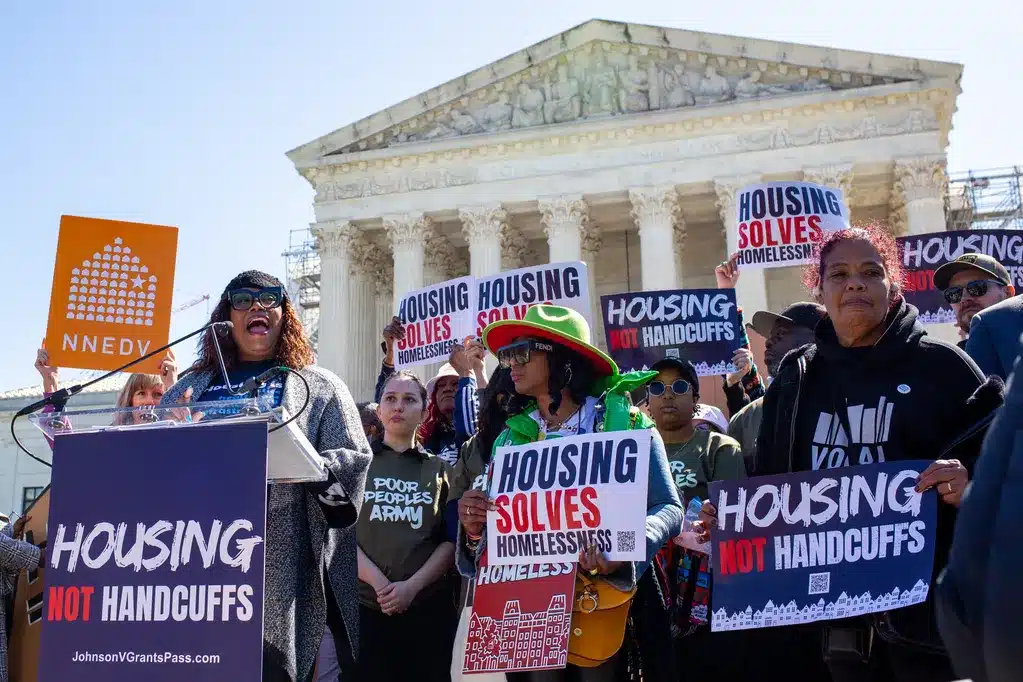We’ve all seen the memes—”Get her something expensive,” one is captioned, with a picture of a kneeling person offering up a carton of eggs. Others speak of how it’s suddenly cool to have a backyard flock that is currently laying eggs.
The bewildering sudden uptick in egg prices was certainly good for laughs, if not for people’s grocery budgets. But what does it have to do with rents?
Robert Reich, former secretary of labor, recently laid out the problem on the egg front pretty clearly: While the story we’ve been told is that the cost increases were due to avian flu and inflation (both of which are very real), in fact the costs to egg producers hadn’t gone up enough, nor had the laying flocks been cut down enough, to even remotely account for the price increases we saw. (And thus the largest egg producers were actually raking in record profits.) Not to mention that small-farm organic/free-range egg costs didn’t skyrocket in the same way, as my local food co-op was quick to crow about.
And yet in a weird way, avian flu and inflation—or at least all the attention on them—are still kind of blameworthy because they gave an excuse, a cover for large egg producers to charge a lot more. Corporate greed is always there, Reich noted, but at least for the moment it needs something to hide behind to avoid public outcry and possible repercussions to their corporate image. But it was, in the end, actually corporate greed that raised egg prices.
I would argue that a similar story may be playing out in the world of housing. Instead of avian flu and inflation, think “lack of new housing supply.” It’s a very real problem in many places, especially affluent communities that have had years of exclusionary zoning and resistance to rentals, density, or multifamily development, and places that have seen sharp upticks in jobs.
However, it’s a real problem that falls a little short as an explanation for all of the rapid rise in rental costs across the country. Ownership and business models matter: Recently we’ve seen reporting on a rent-setting algorithm used widely by property managers that encourages them to collectively push the numbers higher than what had been the market rate, in a move that the U.S. Department of Justice is investigating as a possible antitrust violation. In addition, the business model of large corporate landlords is structured around maximum feasible rent all the time (plus piling on ancillary costs) even if it means higher turnover—a business model enabled by weak tenant protections. In certain submarkets, large landlords hold a large enough market share to distort the market price.
Things other than zoning and regulation also affect building costs, such as labor shortages and supply chain issues. A surge in demand for residential construction, which is what it’s going to take to quickly increase new housing supply, is not going to make those costs go down any time soon (supply and demand, remember?). There are wonky policy issues affecting cost as well.
Finally, there are other things affecting the supply of housing besides how easy or difficult it is to build more of it. Warehousing of housing units has been a longstanding problem in many areas, and there are many flavors of it: there are owners of rent stabilized apartments in New York City holding apartments vacant in protest of strong rent regulations; regular housing being converted to short-term rentals; second homes and pieds a terre; and owners who’d rather just rent out only ground floor commercial spaces or sit on empty properties until they can cash out by selling them rather than bother with the “headache” of a tenant.
Does this mean we don’t have a need to build more housing? No, not any more than corporate egg farmer greed means avian flu isn’t real, and even a very big problem.
It is difficult to tease out the exact contribution each of these factors makes toward increased housing costs, and their effects will vary from place to place. But they are all present. And it is wildly disingenuous to argue that a single new market-rate building should be seen as a meaningful step toward lowering regional housing costs and to also argue that 60,000 units intentionally held vacant or anti-competitive behaviors among a significant subset of landlords somehow do not have a meaningful effect on raising those costs.
Like so many things, the actual answer to why housing costs are going up infuriatingly involves “all of the above” and “there’s no one single solution.”
Isn’t it OK, though, for some movements to just focus on one piece of the puzzle? After all, we all have our particular skill sets and priorities.
Sure. But here’s where I want to go back to Reich and the dynamic he identified.
Making it easier to build new housing as a way to bring down housing costs has caught fire as an idea across the ideological spectrum. The Biden administration, governors everywhere, and the American Planning Association have all recently released housing supply plans, for example, most of which are a good thing. Housing supply is getting a ton of attention, often accompanied by aggressive statements about it being the problem.
An unintended consequence of that bandwagon may be to provide easy political cover for landlords to explain away unreasonably high rents.
We’ve all become so accustomed to hearing that there isn’t enough housing that it’s often accepted as sufficient explanation for extreme and sudden rent increases. It can even be used to shout down or dismiss folks working to change the other factors in the equation, like speculation, collusion, or weak tenant protections.
So yes, by all means let’s fight exclusionary zoning, enable more walkable mixed-income communities, resist affluent communities’ NIMBYism, and remove barriers to building mid-density housing like garden apartments. I am unabashedly in favor of breaking the suburbs’ ability to keep out multifamily and lower-cost housing.
But let’s also tone down the rhetoric about a lack of new supply being the universal reason for unaffordability everywhere. We don’t want to give the bad actors a screen to hide behind.






Thank you Miriam for making this connection, and for publishing it! Making it easier to build to only supply units, and not taking into account how and where, is a developer’s dream! Focusing on only supply does not account for greed which includes having more than one residence and using short term rentals where the housing is needed for locals.
In ‘Westerwood’ Greensboro, NC, the Greensboro Police Department, city officials like Nancy Vaughan and her Facebook Friends of the Westerwood Neighborhood Association all go on campaigns against tenants–who are a minority in the area. If you have a problem with it the Greensboro Police Department will come to Catawba County like it has with me; what the city does is allow people to come to you, take photos of you–they ran area convict Tony Hill out of there in similar fashion, despite his doing noting illegal and slandered resident Gil Maness. The City of Greensboro is an insider operation; once people continue coming to you, if you react, you’ll be charged by the corrupt GPD, namely CRO Ben Wingfield, the ringleader of real estate, with Officer Izaguirre and his partner doing the dirty work. The city takes the charge, blaming you for everything when, in truth, you were endlessly provoked with help from police. GCSO under Barnes put a kink in operations by serving Community Battle-Axe Gail Barger who did nothing but create, lie and slander facts and/or fantasies about others who were usually not wealthy and white; served next was WNA handy-man Kim Maynard who later died in S.C. Charlotte Reese probably has a record for being served by county–she kicked it all off, but being white and having some money is all Nancy Vaughan is geared for. GCSO told me they thought Reese was a real problem so made sure she didn’t escape their attempts at reading her the rules. Anyone in Greensboro reading this can swing by Mimosa Drive and Aberdeen Terrace where Reese, who changed her name back to “Sutton,” whoever she is can be found in the usual spot at Aberdeen Terrace where she ranted and raved for years, until she was finally charged by the GPD for losing it on them. It’s important you know none of that, however, or I’ll be right about that, too. With help from the GPD Reese continued to hound and harass which some felt was the real reason she stood at one spot all day long, doing nothing else because she was crazy aw
There was no egg conspiracy. Here’s a more detailed explanation of what really happened:
https://thedispatch.com/newsletter/capitolism/cracking-the-big-egg-conspiracy/?utm_source=ActiveCampaign&utm_medium=email&utm_content=Xi+and+Putin+s+Burgeoning+Bromance&utm_campaign=Xi+and+Putin+s+Burgeoning+Bromance